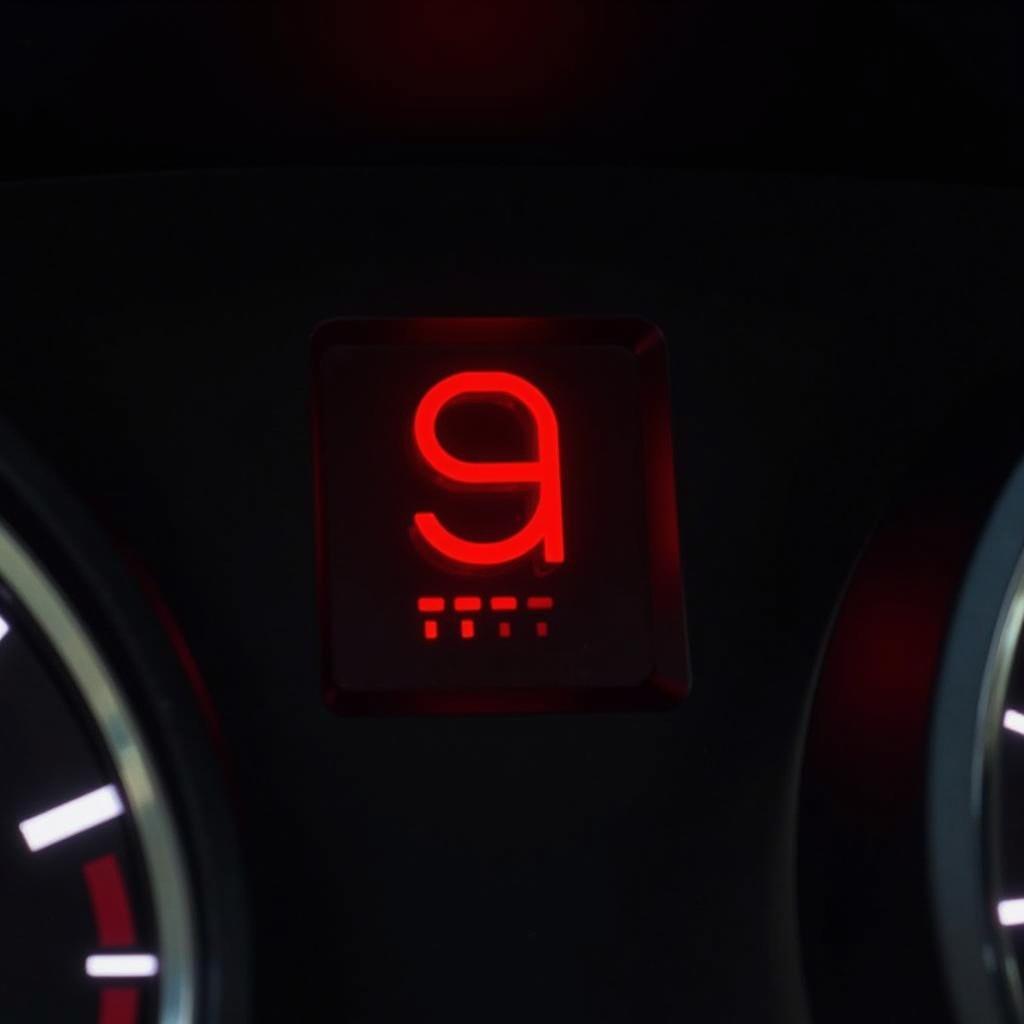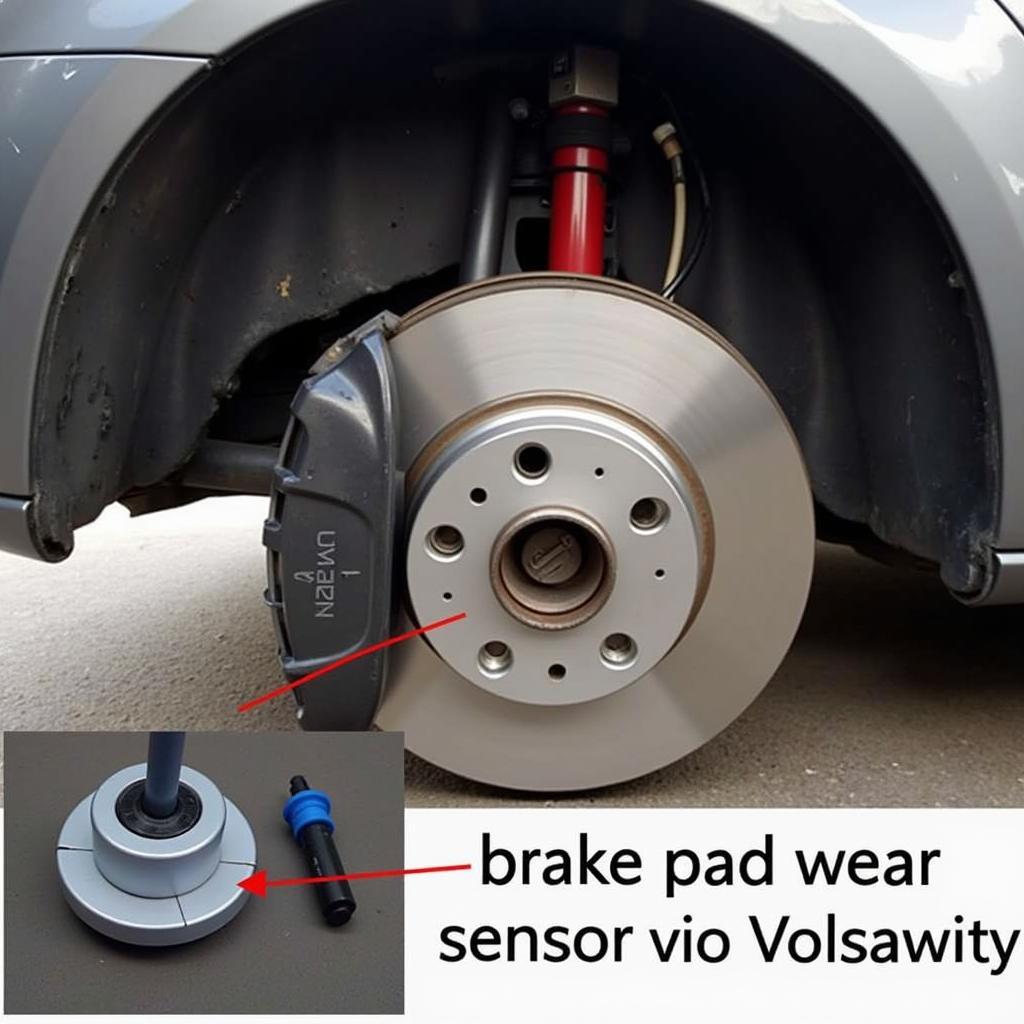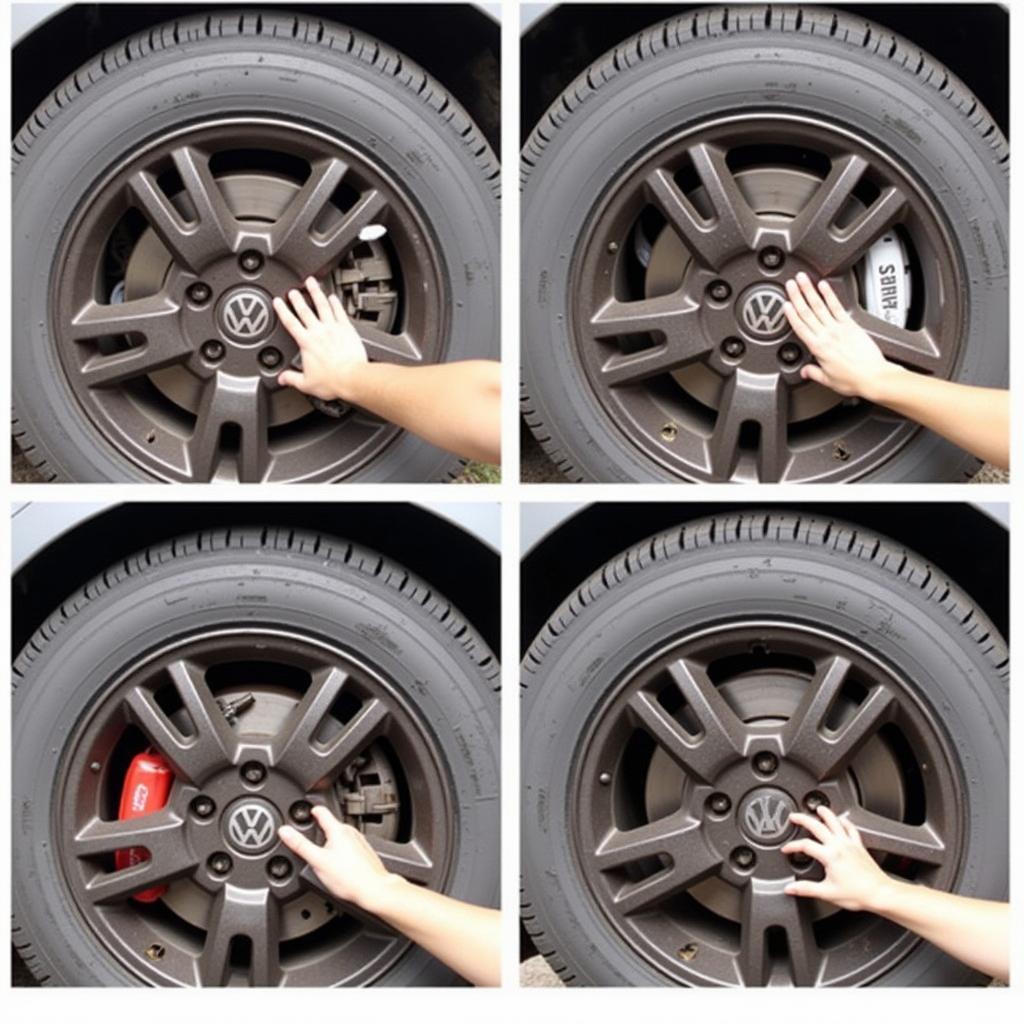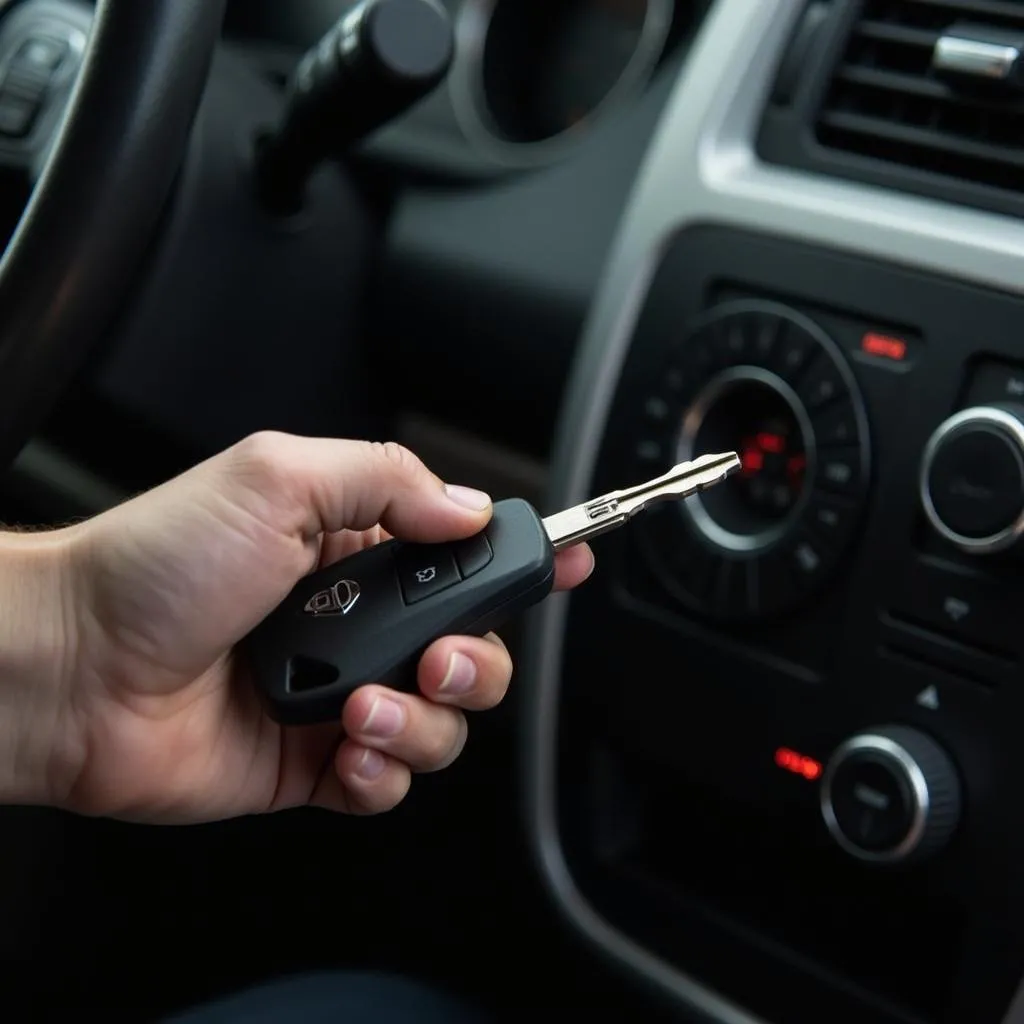If your Volkswagen Jetta’s brake pad warning light has illuminated, it’s crucial to address it promptly. This light is an essential safety feature, indicating that your brake pads have worn down and require attention. Ignoring this warning could compromise your braking ability and lead to more costly repairs.
 VW Jetta Brake Pad Warning Light
VW Jetta Brake Pad Warning Light
Understanding Your VW Jetta’s Brake System
Your VW Jetta utilizes a sophisticated braking system designed for optimal safety and performance. Here’s a simplified breakdown:
- Disc Brakes: Most Jetta models feature disc brakes on all four wheels. Disc brakes use calipers to press brake pads against rotors, creating friction to slow down or stop the vehicle.
- Brake Pads: These are vital components that wear down over time. They’re designed to be replaced, unlike rotors, which can often be resurfaced.
- Brake Pad Wear Sensors: Jettas are equipped with sensors that monitor brake pad thickness. When the pads reach a certain wear limit, the sensor triggers the warning light on your dashboard.
Common Reasons for the Brake Pad Warning Light
While worn brake pads are the most common culprit, other factors can trigger the brake pad warning light in your VW Jetta:
- Worn Brake Pad Sensor: The sensor itself might be faulty or damaged, triggering a false warning.
- Low Brake Fluid: Brake fluid is essential for transmitting force from the brake pedal to the wheels. A leak in the system can lead to low fluid levels, triggering the warning light.
- Electrical Issues: A short circuit or wiring problem within the brake system can also illuminate the warning light.
 Brake Pad Wear Sensor Location
Brake Pad Wear Sensor Location
Diagnosing the Issue: What to Do When the Light Turns On
- Check Your Brake Pads: If you’re comfortable doing so, visually inspect your brake pads. Look for significant wear or if they appear thinner than ¼ inch.
- Monitor Your Brake Fluid: Consult your owner’s manual for the location of the brake fluid reservoir and check the fluid level. If it’s low, there might be a leak.
- Seek Professional Help: If you’re unsure about any aspect of your Jetta’s brake system or suspect a more complex issue, it’s always best to consult a qualified mechanic.
“Ignoring a brake pad warning light is like ignoring a flashing ‘check engine’ light—it’s crucial to get it checked out immediately to prevent further damage and ensure your safety,” says master mechanic, John Smith, who has specialized in Volkswagen repairs for over 20 years.
The Importance of Timely Brake Pad Replacement
Timely brake pad replacement is crucial for several reasons:
- Safety: Worn brake pads compromise your braking distance and overall vehicle control, increasing the risk of accidents.
- Preventing Rotor Damage: Driving with worn brake pads can damage the rotors, leading to more expensive repairs.
- Improved Fuel Efficiency: Properly functioning brakes reduce strain on your engine, leading to better fuel economy.
DIY vs. Professional Brake Pad Replacement: Making the Right Choice
While some car enthusiasts may have the skills and tools to replace brake pads themselves, it’s generally recommended to entrust this task to a qualified mechanic. Brake systems are complex and require specialized knowledge to ensure proper installation and functionality.
 VW Jetta Brake Pad Replacement
VW Jetta Brake Pad Replacement
Resetting the Brake Pad Warning Light: VW Jetta Specifics
The process for resetting the brake pad warning light can vary slightly depending on the model year of your VW Jetta. You can often find model-specific instructions in your owner’s manual.
Need help with resetting the brake pad warning light on your VW Jetta? Check out these resources:
- 2013 VW Jetta Brake Pad Warning Light Reset
- 2013 VW Jetta S Brake Pad Warning Light Reset
- VW Jetta Brake Pad Warning Light Reset
- 2006 VW Jetta TDI Brake Pad Warning Wiring
- 2006 Passat Parking Brake Warning Light
Maintaining Your VW Jetta’s Brakes for Optimal Performance
Here are some tips to keep your Jetta’s brakes in top condition:
- Regular Inspections: Have your brakes inspected annually or every 12,000 miles.
- Brake Fluid Flush: It’s recommended to flush your brake fluid every 2-3 years to prevent corrosion and maintain optimal performance.
- Smooth Braking Habits: Avoid hard braking whenever possible to minimize wear and tear on your brake pads and rotors.
“Just like any other component of your vehicle, your braking system requires regular maintenance to ensure optimal performance and longevity,” adds Smith. “Don’t wait for a warning light to start paying attention to your brakes.”
Conclusion
Addressing the brake pad warning light in your VW Jetta is crucial for your safety and the longevity of your vehicle. By understanding the components of your brake system, potential issues, and the importance of timely maintenance, you can ensure a smooth and secure ride. Remember, when in doubt, always consult a qualified mechanic for expert advice and service.


